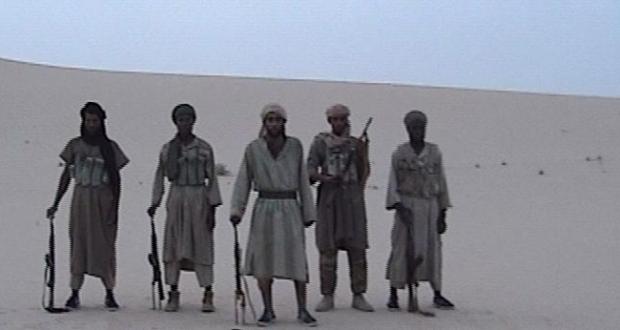4 February, 2015
By Andrea Kazan – Research Assistant
On January 7, Cherif and Said Kouachi assaulted the Paris headquarters of Charlie Hebdo magazine. The next day, Amedy Coulibaly shot a police officer in Montrouge and took hostages at a kosher hypermarket in the French capital. A week after the attacks, Al Qaeda in the Arabian Peninsula (AQAP) released a video in which AQAP commander Nasr Ibn Ali al-Ansi claimed responsibility for the attack on Charlie Hebdo. He stated that the attack was planned for years and that it was ordered by Anwar al-Awlaki. US authorities have confirmed that the video is authentic, but are still verifying if the claims are true.
The claim that is was AQAP who carried out the attack might well be credible for several reasons. First, after the attack on the Charlie Hebdo offices, one of the Kouachi brothers reportedly said to a witness to “tell the media it is al-Qaeda in Yemen”. Moreover, before being killed by the police, Cherif Kouachi told the French authorities by phone that he and his brother were financed by AQAP, specifically by al Awlaki. Second, US authorities believe that Said Kouachi traveled to Yemen in 2011, where he received training and funding from AQAP and where he met Anwar al-Awlaki. Third, Morten Storm, a western spy who infiltrated Al Qaeda, said that even though he does not recognize the brothers, he recognizes their training and the nature of “operatives al Qaeda would try to recruit”. Finally, the claims of Al Ansi could be true because the attack is in line with the mission of AQAP to attack the West. Indeed, Charlie Hebdo, as well as its chief editor, Stephane Charbonier, have been threatened by al Qaeda in the past and have been on its hit list for a long time.
On the other hand, even though there seem to be some evidence that AQAP was the one behind the attacks, this cannot be confirmed with certainty yet. First, Al Ansi provided no proof to support his claims, which leaves unanswered questions about the exact relationship between the Kouachi brothers and the terrorist group. Second, the simultaneous attack on the kosher hypermarket was carried out by Amedy Coulibaly who pledged allegiance to ISIS and its leader Abu Bakr al-Baghdadi in a video that was released after his death. However, in November 2014 when Abu Bakr al Baghdadi declared that he wanted to expand his Islamic State beyond Iraq and Syria to other Middle Eastern countries including Yemen, AQAP released a video in which one of its highest leaders rebuked ISIS. Therefore, since AQAP and ISIS are rivals, there is considerable skepticism over the fact that it was indeed AQAP who coordinated and planned the attacks together with ISIS, and highly unlikely the two happening simultaneously was a coincidence.
A possible theory is that the role of AQAP in the attacks was actually smaller than they claimed in the video: it is very possible that the attacks were carried out by radicalized Muslims who are only remotely associated with ISIS and AQAP. AQAP could have provided training and funding to the brothers, who then planned the details of the attack themselves and coordinated on a personal level with Coulibaly without further AQAP involvement. Indeed, authorities have not found any records of recent communication between the Kouachi brothers and AQAP officials. Moreover, in the video where Coulibaly was shown pledging allegiance to ISIS, he claimed that he worked with the Kouachi brothers. This could be true since the Kouachi brothers and Coulibaly knew each other well and therefore could have planned the attacks together: the wife of Said Kouachi told the authorities that Amedy Coulibaly and her husband knew each other well and French court documents confirmed this. French officials also said that Cherif Kouachi’s wife exchanged numerous phone calls with Coulibaly’s wife. Said Kouachi and Coulibaly also had the same mentor, Djamel Beghal, a top recruiter for Al Qaeda in Europe.
By claiming responsibility for the Charlie Hebdo attack, AQAP may have simply benefited from the situation and exaggerated the role they had in the attack in order to regain their place in the spotlight as the world’s most prominent Jihadi group.
There are other competing theories as to who is behind the Parisian massacres, but the theory that the Kouachis were financed and trained by AQAP, but left to their own devices to collaborate with Coulibaly, certainly seems to hold the most water.
 Human Security Centre Human Rights and International Security Research
Human Security Centre Human Rights and International Security Research




